The people of Manitou and the Great Spirit
The waves rolled over each other like little fat pigs, the wind radiated its minor symphony, while a small group of wooden sailboats rolled calmly on the salty surface of the ocean. It was the turning point of the Summer of the Lord 1492, recorded differently in various history books: as the greatest discovery of recent times or the greatest massacre of a civilization, culture and people, caused by a common mistake, an even more ordinary captain, who paradoxically agreed to the wrong coast. An ancient man who has lived there since Neolithic and Paleolithic times, suddenly "discovered", found himself endangered in all spheres of existence at work. However, the conquering hordes of Spaniards, Dutch, French and English had the opportunity to meet the people who, despite their ignorance and technological underdevelopment, possessed incredible spiritual strength and karma towards their conquerors, which led them to the highest points of their existence. Certain Christian orders, men and women, have sometimes reached that creative power. In the United States, there were hundreds of tiny Indian societies that kept themselves and their individuals at that level for hundreds of years, until the last hour.
This is the story of a nation that in some of its segments has been completely wiped off the face of the earth. About the people, who constituted the proto-forms of democracy while "advanced" Europe was ruled by a monarchy and similar hierarchical arrangements. About the people, on whose tribal arrangement the model of the USA was later built. This is the story of the people of the Great Fire.

To know the spirit of the American Indians means to know another world. This means going beyond the Cartesian age, beyond the Christian age, beyond the Aristotle age, beyond all the dichotomies we know, and entering the world of miracles, the age of man's dawn. Here all the dichotomies are gathered: joy requires sorrow, and sorrow joy, man and society and the world are one, imagination and old concrete wisdom of experience participate in rituals and moralizing stories, songs and myths, idealism and ideality are combined with exploratory and constant practicality. The child is associated with man.
At the time of the discovery, the area where the United States is now contained about a million Indians (more precisely, indigenous Americans). The total number for North and South America was about 30 million Indians. Today, that number in the United States has been reduced to around 2 million. At the time of the arrival of the whites, there was not a square mile that was not used or inhabited. Some 600 Indian dialects served an even larger number of tribal societies. These societies lived in perfect ecological balance with the forest, the plain, the waters and the wildlife. The history of the North American Indians, over a number of centuries, highlights three Indian characteristics, accessible to the average person only through the application of deep social art. They were: psychological maturity, versatility and intensity with calmness.
It is believed that the existence of American Indians is Asia and that migrations began 10,000 years before Christ, and that immigrants arrived from East and even Central Asia. They flowed not only from west to east, but also along the mountain ranges of Alaska, along the Pacific coast, all the way to the Tierra del Fuego. Some groups stopped, and some continued to follow the river flows, which have always been important for human settlements. The first American immigrants brought with them scarce experiences: the use of fire, the interference of plant fibers in tendons, and the making of tools from stone. Of the animals, only the dog was domesticated. On the new continent, they learned to grow plants and make metal ornaments, which conditioned the creation of different cultures. Since the settlers came from different parts of Asia, their languages were different. Over time, eight language groups from two hundred smaller language units emerged in the new homeland. The Indian tradition was mostly maintained thanks to some tribes such as the Zuni and Hopi, and the Apache and Navajo tribes, who lived under the lesser influence of the Spaniards, being in distant deserts uninteresting to conquerors, and whose myths have come down to us. In the vicinity of the great lakes, several tribes of the Algonquian language group merged, such as: Ojivabay, Potavatomi, Sauk, Fox and Kikapu, with the tribes of Sante and Vinebago, who spoke the Siyuan language. South of the Ohio River, tribes such as the Kadoan Pony, Siyuanosagi, and Omaha kept their religion because they were far from all influences.
As for the Kayova tribe, Spanish sources state that they inhabited the Yellowstone River area around 1706, while other sources claim that their existence is the Oklahoma area, where they are still located today. They are characteristic of the southern plains, just as the Cheyenne are characteristic of the northern ones. Throughout history, the Kayos have allied themselves with the Kayo Apaches who spoke the Atabaskan language. Despite their joint participation in wars and ceremonies, as well as their identical material culture, both peoples retained their linguistic identity, social, administrative and religious forms. The Zuni tribe, in southwestern New Mexico, is the largest of all the Pueblo Indians and probably the most conservative. Their religion and philosophy is the most complicated. The myth of the origin of corn was recited once a year, and it was recited by 2 priests. During the recitation, Shalako appear - great supernatural beings in the shape of a bird, known as "divine creatures", to bless the people of Zuna. The ceremony lasts all night. While the story is being told, not a single word should be left out, because the whole ceremony will not have an effect. Today, the Modoci tribe lives on the eastern slope of the Cascade Mountains in Oregon, an area intersected by rivers towards lakes. Their lives are closely linked to valleys, rivers and lakes. They used salmon and other fish from the river, drying them for the winter. They ate meat from turtles, while they used armor for bowls and dishes.

The Cherokee Indians, who lived in South Carolina and East Tennessee, represented the largest North American tribe of 20,000 people, living in 60 cities. The Iroquois tribe originated from a union between five tribes from parts of Northeast America. They were: Kajuga, Mohawk, Onieda, Onondaga and Seneca, who spoke mutually intelligible languages. Their organization has become one of the models of constituting the United States.
Instead of the author's conclusion:
Hey-a-a-hey! Hey-a-a-a-hey! Hey-a-a-hey! Grandpa, Great Soul, look at me once more on the ground and bend down to hear my weak voice. You are the first to live and you are older than every need, you are older than every prayer. All these things belong - two-legged, four-legged, air wings and everything green that lives. You set the power of the four corners of the world to cross. You have crossed a good path and a path of difficulties; and where they intersect, that place is sacred. Day after day, you are the life of everything.
Topic: Where we are deceived (Mici Zibi)
"He lived once, although they claim that there are still some of them, the people are free and natural like a wolf. They were called by the Indians. They understood and understood nature, they called it Manita. The following spoke:
Long ago, when Manitu created the world, he first created plains and mountains. Then rivers and lakes. Then he created the sky, the trees and the grass. After that, he created animals. From every animal the Almighty created his people, he created us. Our people originated from wolves. So children, respect the wolf as your father, your mother. Respect the wolf as your brother. You must not kill him or harm him in any way. He is our totem, our protector. "
Indian legend: White man, Manitu and wolf
The story of the North American Indians, the story of the first, indigenous Americans, goes deep into the distant past, far from the dawn of the first civilizations.
In ancient times, some ten, twenty or more thousand years ago, groups of tribes from East and Central Asia set out on a long journey of uncertainty, a journey into the unknown. Guided by their own destiny and following their inner turmoil, they arrived on some new, undiscovered continent, it will turn out later - not a very hospitable area of today's Alaska.
Discovering themselves over time, the inner urges, dreams and spirits of their ancestors moved on, along the Pacific coast and river valleys in search of habitat and food. Merging with nature, its untouched generosity, challenges and logic - understandable only to those who can respect it, follow and reciprocate selflessly with gifts, they have expanded to the extreme points of the American continent, today's Tierra del Fuego. They were Mongoloid-looking peoples, different from each other in language and culture, tribally organized into hunting-gathering and fishing societies, which would learn to engage in agriculture and plant breeding.
They were peoples poor (or modest) in knowledge, but extremely rich in spirit, the Great Spirit of their own ancestors who guided them unmistakably and whom they highly respected. They were nomads and hunters who understood and respected nature, called it Manita, building on its beauty, innocence and generosity its own civilization and a harmonious world of mutual taking, giving and above all respect.
Wisdom about life:
"Just as you can't see the leaves of any healthy tree arguing or fighting with each other, there's also no need for people to quarrel or fight with each other over anything but friendly competition. When the Great Spirit is known from within, in communities where truth and honesty are respected, people live in harmony with one another. They experience their own lives and the life of the Creator as one and the same life. They know that our people are leaves, and our tribes are branches of a miraculous tree. They know that the life of two-legged and four-legged and winged, the life of plants, rivers and seas, the life of even the sun, the moon and the stars grow from the same tree. They all come from one tree of Being - eternal life that we know as God. In this way, the Great Spirit lives within all things, in every animal and plant, in every tree, and in every one of us who are present here. ”
Immigrants from Asia, the first, indigenous Americans, were children of nature, living in accordance with its laws. Living nomadic and accompanying game on the roads of the endless untouched nature, they were in constant motion and following the currents of nature with all its changes, challenges and gifts. Everything they had, they carried with them - and their tents (wigwame) and their weapons - bow, arrow, spear, ax (tomahawk), and later horses, which mostly served them in migration, fighting and buffalo hunting ( buffalo) their main sources of food and other modest necessities. Wild horses - mustangs, enjoyed their own freedom and freedom.
Rich Indian mythology tells us how much they respected the land: according to them, it was nobody's property, and we just rented it to live on it. The Great Spirit gave us the earth as well as the plants and our fellow animals. In order to survive, the Indian kills only as much as he needs, praying to the spirit of nature and asking for forgiveness.
By the time of European colonization, the North American population numbered approximately less than a million people, who mostly lived along the coast (engaged in hunting, gathering and fishing), rather than along the barren interior of the continent. Over time, their small rural communities switched to agriculture. While the men went hunting for game, the women were engaged in housekeeping, children and growing crops such as corn (which they called the daughter of life), beans, tobacco and other plants.
The main groups of Asian settlers are usually divided geographically into: northwestern coast (e.g., Nutka and Kuakiuti peoples), plateau and basin (Pajati and Nez Perse), southeastern (Cherokee), northeastern (Algonquins and Iroquois), Great Plain (Apache), southwestern (Navajo, Zuni, Hopi and Pueblo), California (Pomo), Subarctic (Chipavimo) and Arctic (Inuit).
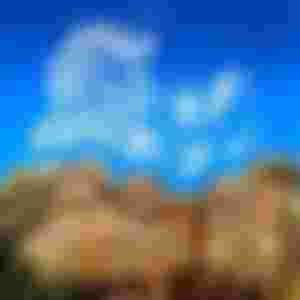
Wisdoms of famous North American chiefs:
CRAZY HORSE (Chief Oglala Siux) - 1875
Treat the country properly: it was not given to you by your parents, it was lent to you by your children. We do not inherit the land from our ancestors, we borrow it from our children. The land that people walk on cannot be sold.
EAGLE CHAPTER - Pawne
In the beginning of all things, wisdom and knowledge were with the animals, for Tirawa, who is above, did not speak directly to man. He sent certain animals to tell man that he was showing himself through beasts, and that he should learn from them, and from the stars and the sun and the moon. All things in the world are two. In our mind we are two, good and evil. We see two things with our eyes, things that are beautiful and things that are ugly. We have the right hand, which strikes and which is made for evil, and the left, which is full of goodness and close to the heart. One foot can lead us to the path of evil, the other can lead us to good. Therefore, all things are two.
GREAT THUNDER - Algonqyin
The Great Spirit is in all things, he is in the air we breathe. The Great Spirit is our father, and the earth is our mother. She feeds us, and everything we put into her she gives back to us.
GEORGE COPWAY - Chief of Ojibwa (1818 - 1863)
There are no written laws among the Indians. Customs passed down from generation to generation are the only law that governs them. Everyone can behave differently from what is considered good if he chooses to do so, but such behavior will bring him the condemnation of the people. Fear of condemnation of the people is a powerful hoop that holds all people in one social body.
STANDING BEAR - Chief Oglala Siux
The wise were the old Lakota. They knew that a person's heart becomes hard when he moves away from nature, and that disrespect for living, growing things also leads to disrespect for people.
TECUMSEH - chief of the Shawnee tribe
Always greet a friend when you meet him or pass by him, greet even a stranger in a lonely place. Respect all people and do not bow to anyone. When you get up in the morning, give thanks for the food and the joy of life. If you see no reason for all this, the fault is only in you. Do not exploit anyone or anything, because that turns sages into fools and captures the spirit of vision.
DAN GEORGE - chief of the Salish tribe
If you talk to animals, they will talk to you too and so you will get to know each other. If you don’t talk to them, you won’t meet them, and what you don’t know, you’re afraid of. What you fear, you destroy.
CRAZY HORSE - Chief Oglala Siux
We did not ask you, white people, to come here. The Great Spirit has given us this land as a home. You had your country. We didn't touch you. The Great Spirit has given us a lot of land to live on, He has given us bison, deer, antelope and other game. But you came here; you take our land, you kill our game and it is difficult for us to live. Now you tell us to work for a living, but the Great Spirit did not force us to work, but to live by hunting. You white people can work if you want. We do not interfere in your affairs, and you ask us why we do not become civilized. We don't want your civilization! We want to live like our fathers.
SITTING BULL (Tatanka Yotanka) - Chief of Hunkpapa Siux
I'm a red man. If the Great Spirit wanted me to be white, He would make me like that. He put one wish and plan in your heart, another in my heart. Every man is good in his eyes. Eagles don’t have to be crows. We are poor, but free. No white man controls our steps. If we have to die, we will die defending our rights.
STANDING BEAR - Chief Oglala Siux
From the Indian approach to life comes great freedom - a deep and all-encompassing love of nature, respect for life, enriching faith in the ultimate power, and the principles of truth, respect, generosity, equality and brotherhood as guides in human relations.
STANDING BEAR - Chief Oglala Siux
In the hearts of all of us, there is a hidden road that is rarely traveled, and which leads to an unknown, secret place. The old people really loved the country and they sat on it and rested with the feeling that they were close to their mother's strength. They built their tents on the ground, and their altars out of the earth. The earth calmed, strengthened, purified and healed. That is why the old Indian still sits on the ground, does not get up and does not separate from her life-giving forces. For him, sitting or lying on the ground means being able to think deeper and feel stronger. He can penetrate more clearly into the secrets of life and come into a closer relationship with the life around him.
JOSEPH (Heinmot Tooyalaket) - Nez Perce
The earth was created with the help of the sun and should be left as it is. The earth was created without dividing lines and it is not up to man to divide it. I see whites all over the country getting rich and I see their intention to give us worthless land. Earth and I are one mind. The dimensions of the earth and our bodies are the same. Tell us, if you can say that, that you were sent by a creative force to talk to us. You may think that the Creator sent you to destroy us. If I thought that the Creator had sent you, I could also believe that you have the right to dispose of me. Don’t get me wrong, but fully understand my attachment to the country. I never said that I could do with the country whatever I wanted. The only one who has the right to dispose of the earth is the one who created it. I have the right to live on my own land, and so you have the right to live on your own.
This is the story of the people of the Great Spirit and the opposed world of a greedy, hypocritical and cruel white man. This is the story of one of the greatest and most brutal genocides in the history of mankind. This is an essay on beauty, the human soul, miraculous nature, respect, compassion, wisdom, truth and justice, on the one hand - the Indian side, and bestiality, lies, hypocrisy, insidiousness, injustice and unnoticed evil, on the other hand the so-called. a civilized, pious, Euro-Americanized modern man, a wolf in the lambskin of Christianity who wields a sword in the name of "higher" goals and "rights." This is a sad thought, seeing two opposing concepts of life and the world, the story of the brutal disappearance of one, Indian civilization, and the emergence of a "modern, just and Christian" world on a soil soaked in the blood of "red-skinned" brothers. This is one of the possible answers to the eternal question of all of us: WHO ARE WE, WHAT ARE WE LIKE AND WHERE ARE WE GOING ?.
Crow's Foot Chief:
What is life? It’s the flicker of a scroll in the night. It is the breath of a buffalo in the winter cold. It is a small shadow that runs across the grass and disappears with the sunset.
We are singing stars
we sing with our splendor
we are fiery birds
we fly in the sky
we look down at the mountains
these are the songs of the stars
Algonquin's song
And as centuries of peace, freedom, and harmony with nature and the Great Spirit passed harmoniously across the vast and wild expanses of America, as Native Americans built their new world according to Maniut as the Creator of all things, the spirits of their ancestors, their myths and legends, nomadically wandering and listening only to his own pure heart, on the other side of the "big pond", that is. of the Atlantic Ocean, a completely different world was developing, preparing for its fateful, long journey.
Medieval Europe, the heir and bearer of the so-called advanced and Christian Western civilizations, in their full technological rise and hanging power, after the "merciful" crusades directed to the unconquered East, in the name of "God, faith, justice and the only possible truth", directs its gaze of the righteous and adventurous to the West, throwing an eye on everything that can serve the purpose of achieving the "sublime and sacred goals" of the Chair and the Crown. Becoming the world's leading naval power (primarily thanks to future colonizers of the planet: Spain, Portugal, the Netherlands, France and the inevitable, most bloodthirsty and cynical British Crown, which will cover about 90% of the world's territory in the next 4 centuries), with the Holy Cross in with one hand and a sword and a rifle in the other, Europe embarks on an ocean adventure with its sailboats on the adventure of "discovering, enlightening and missionarily spreading its own merciful faith" to the rest of the world.

Wandering, on the way to India, under the blessing of the Spanish Crown, the navigator Christopher Columbus arrives in ignorance on the shores of an unknown world, in the summer of 1492. Thinking that it is the shores of a distant land of India, Indians. Wrong name, from the wrong people, uninvited guests, in the wrong place. It was the first encounter with a new continent (later christened - America, after another sailor), an unknown civilization and a view of life and the world. It was, time will tell, a fatal encounter of the third kind, an introduction to the pogrom and the disappearance of the so-called pagans and savages, mistakenly called Indians, by the "civilized followers" of Christ. It was one of the moments in the painful history of the world when all true values were either destroyed or turned upside down - the moment in which the so-called The European "Lamb of God" slaughtered Wolf „
At the end of this part of the story, when you translate the course of Indian civilization, all the wisdom and legends, as well as the way of life and behavior of Indians towards Nature, others and themselves in the language of Christianity, benevolent words and deeds of Jesus Christ, and compare them with Euro-American vision Christianity and especially the deeds in that name, you will understand (I hope) who the real Christians really were, who were merciful, and who the fallen angels were! Deeds (fruits) speak.
INDIAN CODE OF ETHICS:
1. Get up with the sun and pray. Pray alone. The Great Spirit will only listen if you speak.
2. Be tolerant of those lost along the way. Ignorance, anger, jealousy and greed come out of lost souls. Pray for them to find guidance.
3. Seek yourself, through yourself. Don't let others control your path. It is your path and only yours, others can go with you, but no one can go instead of you.
4. He treats the guests in the house with a lot of caution. Serve them the best food, give them the best bed, treat them with respect and honesty.
5. Don’t take what isn’t yours, be it from some person, community, wilderness or someone’s culture. It is not deserved and given. It's not yours.
6. Respect everything that exists on earth, be it people or plants.
7. Respect other people's opinions, wishes and words. Never interrupt someone's speech, do not object or rudely imitate what was said with facial expressions. Allow each person the right to personal expression.
8. Never speak ill of others. The negative energy that you send into the universe will return to you many times over.
9. All people make mistakes. All mistakes can be forgiven.
10. Negative thoughts cause disease of the mind, body and spirit. Practice optimism.
11. Nature is not ours, it is a part of us. She is part of our secular family.
12. Children are the seeds of the future. Plant love in their hearts and fill them with wisdom and teachings of life. As they grow, give them a place to grow.
13. Avoid hurting the hearts of others. The poison hurts, it will come back to you.
14. Be honest at all times. Honesty is a test of heritage and consistency, within this universe.
15. Keep yourself in balance. Your mental self, spiritual self, emotional self and physical self. They all need to be equally strong, clean and healthy. Strengthen the body to strengthen the mind. Grow rich in spirituality to heal emotional wounds.
16. He makes conscious decisions, what I will be like and what I will be like, how I will act and deal with my actions. Be responsible for your actions.
17. Respect the privacy and privacy of others. Do not touch other people's property, especially do not touch sacred and spiritual relics. That is forbidden.
18. Be honest with yourself first and foremost. You cannot be careful and help others if you are not careful with yourself and do not help yourself first.
19. Respect other people's religious beliefs. Don't force others to believe in yours.
20. Share your good luck. Share and participate in giving alms.
After the act of "discovery", America and its natives began to be swept away by the deadly waves of European colonizers and conquerors. Spanish conquistadors (murderers and robbers), then the so-called missionaries and merchants, drew with them similar adventurers and executioners from Portugal, the Netherlands, France and, of course, the inevitable centuries of Britain. In the name of God (the Catholic Church and the Holy See), "higher" goals, the "rights" of the higher race and the "justice" of the stronger, greed and greed, cynicism and ruthless hypocrisy, the path of the "promised" land and the New World. someone else's misfortune) started all possible - official and unofficial adventurers, conquerors, missionaries ready to be baptized and brutally brought to the so-called Christianity, the so-called "Natives and savages", murderers, fraudsters, convicts and merchants eager to get rich as quickly and as possible. All in all, all possible and impossible scum (with the blessing of the Crown and the already mentioned Church).
Four centuries of hell and apocalypse for the Indian world followed - four centuries of perfidious lies, cynical fraud, ruthless looting, violent baptism, violations of all possible human rights, humiliation and massacre - GENOCIDE of unimaginable proportions that brought Native Americans to the brink of extinction . Unseen, cynical, cruel and perfidious evil has accumulated over time from the East Coast of today's United States (through the instructive story of the "redemption" of Manhattan, today's elite part of the elite metropolis of New York, the center of the world economy fraud with all Wall Street, when Europeans bought it from the Indians for as much as $ 24, and when the Indians, realizing what they had actually done, christened it by its real name - Where We Have Been Deceived. starting from the 16th century, reaching the West Coast at the end of the 19th century (the final massacre, over the Sioux), as the final "solution" to the Indian question (sounds kind of familiar, doesn't it?). The final "solution" consisted of a pogrom of Indians, the seizure of almost all Indian territory, the deprivation of all human rights and persecution in reserves (a more sophisticated name for camps), as well as paving the way for the biological extinction of one nation, ironically, the only true Americans.
The so-called cynicism. treaties, treaties, ordinances, and laws made in favor of only one party or form only during the said centuries of conflict, finally confirmed by sword and firearm, and signed, permanently valid, in the blood of all those who did not receive the benefits of the newly created United States, Of the United States without nearly a single Native American, a native. Add to all this the story of bringing people from Africa and enslaving them without any rights, by the United States, the most liberal democracy in the universe and beyond, as well as spreading the story of human rights around the world by force, and American military engagement and global enslavement of the rest of the world by perfidious economic means, feelings of bitterness and disgust are difficult to describe and understand…
O Earth, our mother,
O Heaven, our Father,
we are your children, on tired backs
we bring you the gifts you love.
So knit us great clothes,
let its base be the white light of the morning,
let her weft be the red light of the evening,
let her tassels be of rain,
let its edge be a straight rainbow.
Weave us such great clothes,
so we can walk as we should
where the grass is green,
o Earth, our mother, o Heaven, our father.
the Winebago tribe
Before going into a deeper look at the facts already mentioned and the way they were implemented (in the official history of the victors portrayed as "a just struggle for the progress of humanity and the creation of a perfect democratic society"), we will once again dive into the world of the North American people. The following is a concise story of several tribes that made up the Indian world. The review is incomplete and partly inspiring for further research on the unofficial history of the deceived.
The wisdom of the Indians is not only reflected in their love for nature, which they respect, but their wisdom is their being.
One Cherokee Indian told his grandson:
"There is a constant battle going on in the people. There are two wolves constantly fighting. One is Evil, it is fear, anger, envy, malice, remorse, greed, arrogance, self-pity, guilt, resentment, inferiority, lies, false pride, superiority and ego.
The other is Good, it is joy, peace, love, hope, serenity, humility, kindness, benevolence, compassion, generosity, truth, faith and compassion.
Which wolf wins? - asked the grandson.
And old Cherokee replied:
The one you feed.
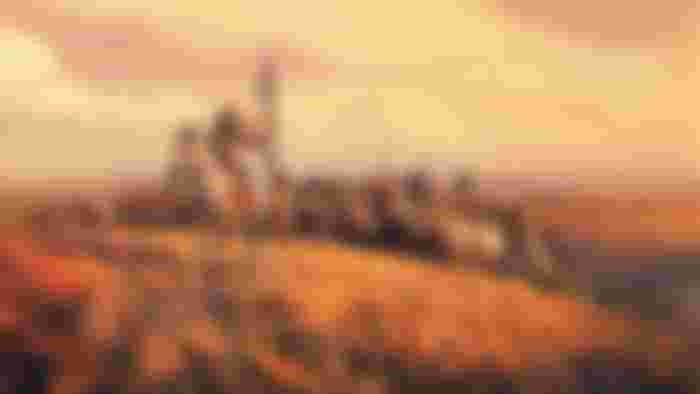
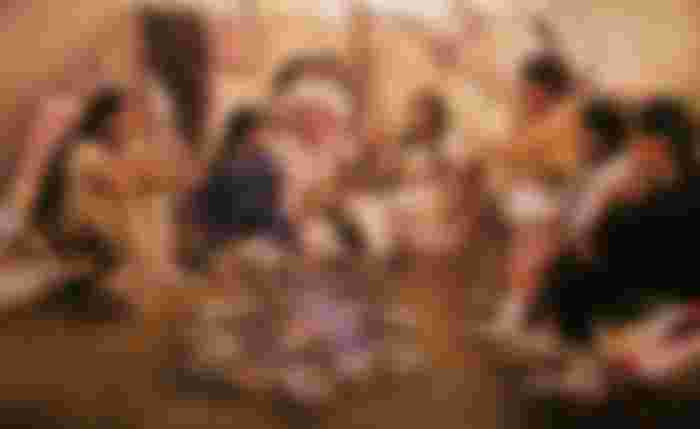
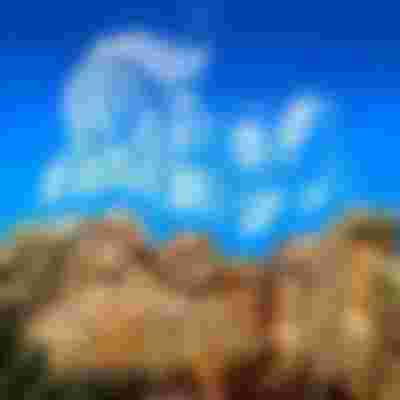
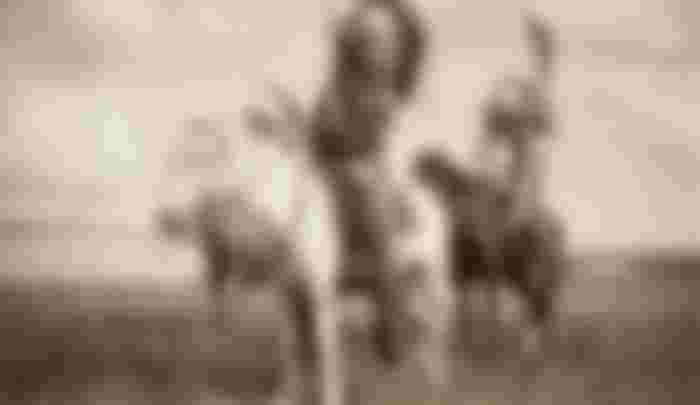
Wow Super story Dear. keep writing